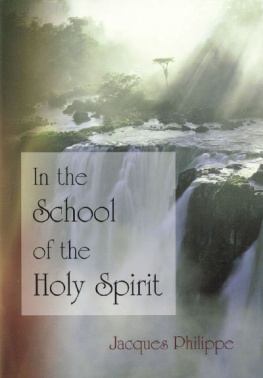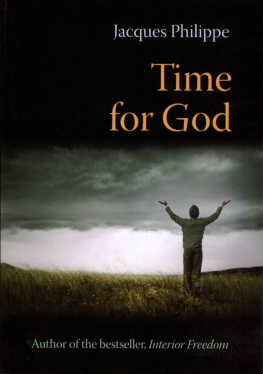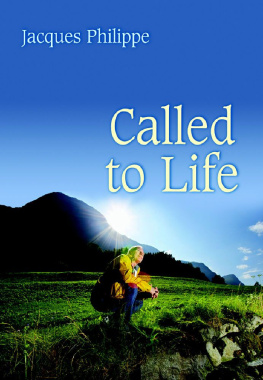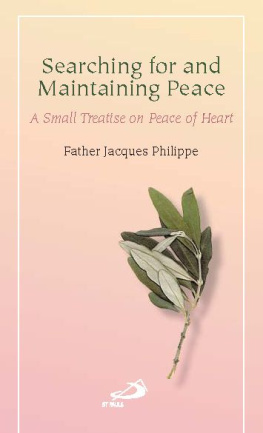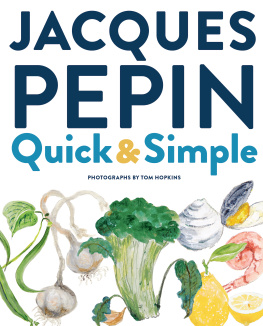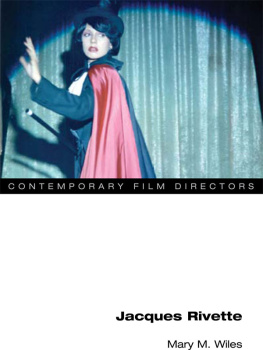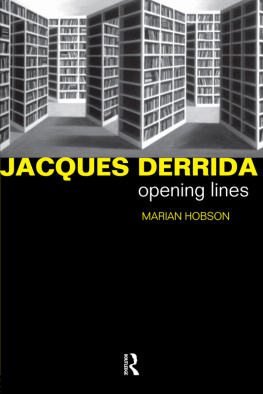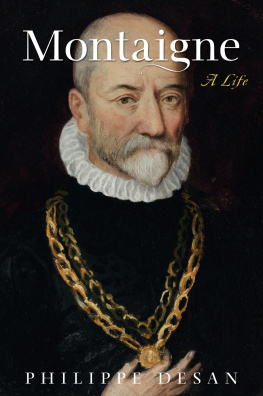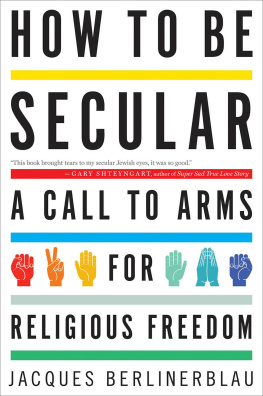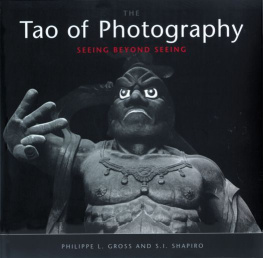Jacques Philippe - Interior Freedom
Here you can read online Jacques Philippe - Interior Freedom full text of the book (entire story) in english for free. Download pdf and epub, get meaning, cover and reviews about this ebook. year: 2010, publisher: Scepter Publishers, genre: Religion. Description of the work, (preface) as well as reviews are available. Best literature library LitArk.com created for fans of good reading and offers a wide selection of genres:
Romance novel
Science fiction
Adventure
Detective
Science
History
Home and family
Prose
Art
Politics
Computer
Non-fiction
Religion
Business
Children
Humor
Choose a favorite category and find really read worthwhile books. Enjoy immersion in the world of imagination, feel the emotions of the characters or learn something new for yourself, make an fascinating discovery.
- Book:Interior Freedom
- Author:
- Publisher:Scepter Publishers
- Genre:
- Year:2010
- Rating:5 / 5
- Favourites:Add to favourites
- Your mark:
- 100
- 1
- 2
- 3
- 4
- 5
Interior Freedom: summary, description and annotation
We offer to read an annotation, description, summary or preface (depends on what the author of the book "Interior Freedom" wrote himself). If you haven't found the necessary information about the book — write in the comments, we will try to find it.
Interior Freedom — read online for free the complete book (whole text) full work
Below is the text of the book, divided by pages. System saving the place of the last page read, allows you to conveniently read the book "Interior Freedom" online for free, without having to search again every time where you left off. Put a bookmark, and you can go to the page where you finished reading at any time.
Font size:
Interval:
Bookmark:
Interior Freedom
Jacques Philippe
Translated by Helena Scott
Scepter Publishers, Inc.
www.scepterpublishers.org
Originally published as La Libert intrieure
Copyright 2002, Editions des Beatitudes, S.C.C.
Burtin, France
Scripture texts from the New and Old Testaments are taken from The Holy Bible Revised Standard Version Catholic Edition, 1965 and 1966 by the Division of Christian Education of the National Council of the Churches of Christ in the United States. All rights reserved. All copyrighted material is used by permission of the copyright owner. No part of it may be reproduced without permission in writing from the copyright owner.
English translation copyright 2007,
Scepter Publishers, Inc.
P.O. Box 211, New York, N.Y. 10018
www.scepterpublishers.org
All rights reserved.
Translation of texts on the back cover are by Sofia Cabrera
This edition is for sale in all countries except the Philippines and in Africa.
ISBN-13: 9781594170522
ISBN-10: 1594170525
eBook ISBN: 978-1-59417-096-6
PRINTED IN THE UNITED STATES OF AMERICA
Contents
Where the Spirit of the Lord is, there is freedom.
St. Paul
We will offer God our will, our reason, our mind, our whole being through the hands and the heart of the Blessed Virgin. Then our spirit will possess that precious freedom of soul, so far removed from tension, sadness, depression, constraint, and small-mindedness. We will sail the sea of abandonment, being freed from ourselves to attach ourselves to him, the Infinite.
Mother Yvonne-Aime de Malestroit
This book is about a basic theme of Christian life: interior freedom. Its purpose is simple. Every Christian needs to discover that even in the most unfavorable outward circumstances we possess within ourselves a space of freedom that nobody can take away, because God is its source and guarantee. Without this discovery we will always be restricted in some way, and will never taste true happiness. But if we have learned to let this inner space of freedom unfold, then, even though many things may well cause us to suffer, nothing will really be able to oppress or crush us.
The thesis to be developed is a simple but very important one: we gain possession of our interior freedom in exact proportion to our growth in faith, hope, and love. This book will look specifically at how the dynamism of what are classically called the theological virtues is the heart of the spiritual life. It will also underline the key role of the virtue of hope in our inner growth. Hope cannot really be exercised apart from poverty of heart, so that the whole of the book may be considered a commentary on the first beatitude: Blessed are the poor in spirit, for theirs is the kingdom of Heaven.
We shall return to certain topics that have been covered in my previous books and look at them more deeply: inner peace, prayer life, and docility to the Holy Spirit.
At the beginning of the third millennium, it is hoped that this book will help those who wish to open themselves to the marvelous inner renewal that the Holy Spirit wants to bring about in peoples hearts, and in this way reach the glorious freedom of the children of God.
I
Present-day culture and Christianity can, in a sense, find common ground in the concept of freedom. After all, Christianity is a message of freedom and liberation. To realize this, we need only to open the New Testament, where the words free, freedom, set free occur regularly. The truth will make you free, says Jesus in St. Johns Gospel. What we need to do, and will try to do in the course of this book, is find out the real nature of this freedom.
Modern culture has been marked for the past few centuries by a strong aspiration for freedom. Everyone realizes, however, how ambiguous the notion of freedom can be; false ideas of freedom have alienated people from the truth and caused millions of deaths. The twentieth century above all saw that happen, to its cost. But the desire for freedom remains observable in every sphere: social, political, economic, and psychological. Its urgency is probably due to the fact that, despite all the progress achieved so far, this desire still remains unfulfilled.
In the area of morality, freedom appears very nearly the only value about which people still agree unanimously at the beginning of the third millennium. Everyone more or less agrees that respect for other peoples freedom is still a basic ethical norm. Undoubtedly this is more a matter of theory than practice, as western liberalism becomes progressively more totalitarian. It may be merely a manifestation of the underlying selfishness of modern man, for whom respect for the freedom of the individual is less a recognition of an ethical law than a declaration of individualismnobody can prevent me from doing what I feel like! Yet this aspiration for freedom, so strong among people today, even though it includes a large dose of illusion and is sometimes fulfilled in mistaken ways, contains something very true and noble.
Freedom and happiness
Human beings were not created for slavery, but to be the lords of creation. This is explicitly stated in the Book of Genesis. We were not created to lead drab, narrow, or constricted lives, but to live in the wide-open spaces. We find confinement unbearable, simply because we were created in the image of God, and we have within us an unquenchable need for the absolute and the infinite. That is our greatness and sometimes our misfortune.
We have this great thirst for freedom because our most fundamental aspiration is for happiness; and we sense that there is no happiness without love, and no love without freedom. This is perfectly true. Human beings were created for love, and they can only find happiness in loving and being loved. As St. Catherine of Siena puts it, man cannot live without loving. The problem is that our love often goes in the wrong direction: we love ourselves, selfishly, and end up frustrated, because only genuine love can fulfill us.
Only love, then, can satisfy us; and there is no love without freedom. The kind of love that is the result of constraint, or self-interest, or the mere satisfaction of a need, does not deserve the name love. Love is neither taken nor bought. There is true love, and therefore happiness, only between people who freely yield possession of the self in order to give themselves to one another.
Here we can get some idea of how precious freedom is. Freedom gives value to love, and love is the precondition of happiness. The reason why people attach so much importance to freedom must be because they perceive this truth, however confusedly; and from that point of view, it must be admitted they are right.
But how do we achieve the freedom that will enable love to flourish? To attain this goal, let us look first at certain widespread illusions that must be put aside if we are to enjoy true freedom.
Freedom: Claiming Autonomy or accepting dependence?
Although the idea of freedom, as we have seen, can be viewed as a meeting point between Christianity and present-day culture, it also appears paradoxically to be the point at which they are furthest apart. For modern man, to be free often means throwing off all constraint and all authorityNeither God nor master. For Christianity, on the other hand, freedom can only be found by submitting to God, in the obedience of faith that St. Paul speaks of. In other words, people who wish to preserve and defend their own freedom at any cost will lose it, but those willing to lose it by leaving it trustingly in Gods hands will save it. Their freedom will be restored to them, infinitely more beautiful, infinitely deeper, as a marvelous gift from Gods tenderness. Our freedom is, in fact, proportionate to the love and childlike trust we have for our heavenly Father.
Next pageFont size:
Interval:
Bookmark:
Similar books «Interior Freedom»
Look at similar books to Interior Freedom. We have selected literature similar in name and meaning in the hope of providing readers with more options to find new, interesting, not yet read works.
Discussion, reviews of the book Interior Freedom and just readers' own opinions. Leave your comments, write what you think about the work, its meaning or the main characters. Specify what exactly you liked and what you didn't like, and why you think so.

